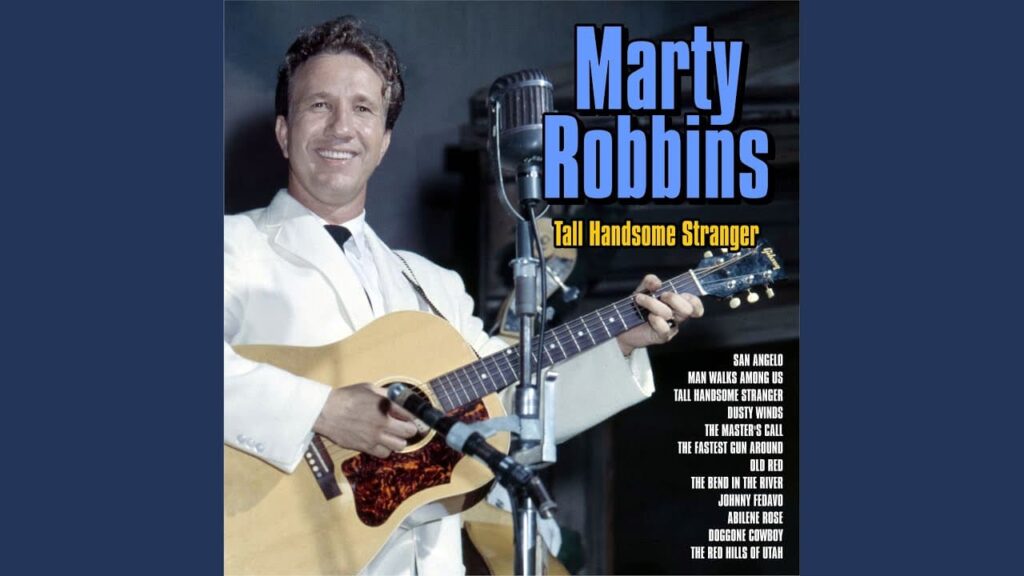
Marty Robbins – “Mr. Shorty” (1966): The Unsung Ballad of Underestimated Justice on the Dusty Trail
To immerse oneself in the music of Marty Robbins is to open a well-worn book of American folklore, where every strum of the guitar and every measured word tells a cinematic tale. He was the undisputed master of the Gunfighter Ballad, and while his iconic “El Paso” rightly dominates the conversation, there are deeper cuts that resonate with the same dramatic power and moral complexity. Among these is the compelling 1966 track, “Mr. Shorty,” a gripping narrative released on his highly acclaimed Western album, The Drifter. This is a song that speaks to the dignity of the underdog and the folly of judging a man by his stature.
The song was a respectable success for Robbins, released at a time when his Western-themed music enjoyed a devoted following. “Mr. Shorty” climbed the Billboard Hot Country Singles chart to peak at Number 16, a solid showing that reinforced the commercial viability of his ambitious story-songs. The parent album, The Drifter, itself was a Top 10 performer, peaking at Number 6 on the Country Album chart, demonstrating that the public was eager to follow Robbins deeper into the dusty canyons and moral dilemmas of the Old West. This track, in particular, stood out for its crisp storytelling and its unexpected twist.
The story is a brilliant piece of lyrical short fiction, penned by Marty Robbins himself, which is often the case with his most memorable ballads. It unfolds in a saloon setting, narrated by the bartender. The narrator introduces a small man—barely five feet tall—who orders a drink with a quiet, polite demeanor. When a large, boisterous, and frankly, cruel bully taunts the little man, calling him a derogatory name, the little man simply responds, with a chilling calmness, “It’s Mr. Shorty to you.” This moment of quiet defiance is the pivotal turn, the flashpoint of dignity that the bully foolishly ignores.
The profound meaning of “Mr. Shorty” is wrapped in the age-old lesson of appearances being deceiving. It is a powerful affirmation for those of us who have ever felt overlooked, underestimated, or dismissed based on superficial traits. The song details the little man’s lightning-fast draw—a moment of stunning, lethal competence—that leaves the large, arrogant man dead on the saloon floor. It’s a stark, uncompromising delivery of frontier justice, showcasing that a man’s worth and dangerous capabilities are not measured by his height or the loudness of his voice, but by his quiet resolve and skill.
Robbins’ vocal delivery here is masterful. His rich, versatile baritone—capable of soothing ballads and sharp, spoken-word narratives—takes on a tone of knowing, slightly cynical observation. He delivers the tale with a detached, journalistic cool that allows the dramatic climax to hit with maximum impact. For listeners of a certain age, particularly those who grew up with the romance and harsh reality of classic Westerns, this song isn’t just entertainment; it’s a moral fable. It champions the forgotten, the seemingly weak, proving that true strength often resides in the quietest corners. It’s a timeless narrative reminding us that arrogance invites disaster and that respect, particularly for the understated man, is always due.